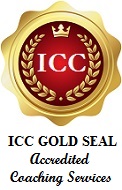|
Alpha (8-14 hertz) brain wave is the goldilocks
performance zone.
This is where a state of “quiet alertness” is possible. Focus is
achieved without putting too much strain on rational cognitive
function, minimising the risk of mental burn-out and negative
thought intrusion while still being able to perform demanding tasks.
At theta (below 8 hertz), focus is
turned inward and individuals can be described as “inattentive” and
are often unable to “switch on”. These individuals struggle to focus
on anything in particular and need to raise their brain’s frequency
in order to reach alpha.

The Yerkes-Dodson law states that increased arousal improves
performance, but only up to a certain point.
An over active mind directly affects
performance anxiety.
EXAMPLE:
For people whose brains hum in the beta range (above 14 hertz),
arousal levels are naturally high and need to be brought down to
reach alpha. Focus is difficult to maintain, not because not enough
information is being absorbed, but because there is an overload of
information.
Imagine someone who is overcome with
fear and anxiety in performing a task. Or a performance artist or a
tennis player being distracted by every sneeze or noise in the
audience.
People who can access an Alpha state
tend to demonstrate superior performance on both physical and mental
tests. And people who find their optimum Alpha level perform at
their highest level.
Generally we use Beta frequencies for
high-level learning and when in the fight or flight response mode.
Unfortunately this is where what Zen Masters call our constantly
chattering ‘Monkey Mind' resides.
For most people the very act of trying
to raise to an Alpha level takes years of study to achieve.
The Alpha state isn't easy to just naturally ‘achieve' out of
nowhere, unless you know how to do it consciously. Many people try
traditional meditation, deep breathing exercises or yoga to access
this state. But, to truly gain any substantial benefit it requires
daily practice over many years. Additionally, it's not easy to just
“jump” into the Alpha state.
Self-Regulating Arousal
With the aid of new breakthrough
technology Neurofeedback Coaching helps to control levels of arousal
in adults and children. The technology's special ability to allow
the user to access a mental
state has proved a highly effective way of reaching alpha frequencies.
When the mind is at ease, so too is
the body. Fight/flight responses become normal, muscles relax, and
the body’s natural pH balance is less acidic as a result of normal
adrenal gland secretion and endocrine function. Business
professionals, sportspersons and students alike are able to
strategize and plan more effectively when not clouded by anxiety and
high states of arousal.
How many chokes, blunders, or missed
opportunities occur every
day in the world around us? What if our clients are able to remain
calm and control their arousal levels? It’s fair to say that they
can create a more desirable future for themselves.
With
our course’s brainwave entrainment the user drifts into a peaceful,
calm and relaxed state in just a few minutes. It's easy to do, fun
and as explained above, highly beneficial.
Accessing our Alpha brain waves helps us to feel more centered,
chilled, confident and less anxious.
Users
Outstanding performers in all fields use neurofeedback technologies
to reach their peak; from professional musicians to poker champions.
It is extensively used in elite sports; by professional golfers,
Olympic athletes, and many of the world’s top professional sports
clubs.
Surgeons use it to improve concentration; corporate executives use
it to increase emotional intelligence for improved leadership skills
and better time management whilst others use it as a mental guide to reach
mindful, meditative or other spiritual states.
Some people simply use neurofeedback brain training for release from stress, to improve
sleep, and to be at their best no matter what circumstances they
face.
Note: Many users
of Neurofeedback Coaching believe it provides them a
competitive advantage and therefore choose do not disclose to others
or their
competition about their use.
Includes Extracts from ‘Neurofeedback for Peak Performance Training’
(2017) Journal of Mental Health Counseling 39:1,
71-83. 10-Jan-2017.
|
















